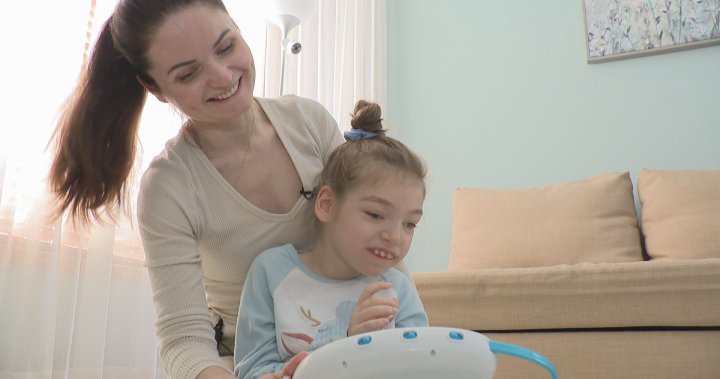The Borys family, originally from Kyiv, Ukraine, has found a haven in Winnipeg, Canada, a stark contrast to the daily threat of Russian shelling they faced in their homeland. Having resided in Canada for two and a half years, they yearn to make their stay permanent, pinning their hopes on the provincial nominee program. Their application, lodged two years ago, remains in a state of frustrating limbo, despite many of their peers who applied around the same time receiving approvals. This uncertainty casts a shadow over their future, leaving them in a precarious position. The contrasting experiences of safety, respect, and care they found in Winnipeg versus the constant fear and uncertainty in Ukraine has solidified their desire to remain in Canada.
The couple’s youngest daughter, Yuliana, aged nine, has special needs and requires a wheelchair. Canada’s inclusive education system has been transformative for her, providing opportunities unavailable in Ukraine. This access to quality education is a cornerstone of the family’s desire to stay. Oleksandra, Yuliana’s mother, emphasizes the significance of this educational access, contrasting it with the limited options available in Ukraine. This underscores the family’s belief that Canada offers a brighter future for their daughter, a future they are determined to secure. Witnessing their daughter thrive in an environment that embraces and supports her needs has further fortified their resolve to remain in Canada.
Roman, Yuliana’s father, highlights the stark difference in accessibility between Canada and Ukraine. Simple things, like automatic door openers, represent a significant improvement in quality of life for Yuliana, granting her a level of independence previously unattainable. This accessibility extends beyond physical infrastructure; it encompasses a societal acceptance and support that was absent in Ukraine. These everyday experiences have deeply impacted the family, reinforcing their conviction that Canada is the right place for their daughter to flourish. The accessibility and inclusivity they’ve encountered has not only improved Yuliana’s life but has also profoundly shifted the family’s perspective on what is possible for her future.
Even if the war in Ukraine were to end, the family’s roots in Winnipeg have grown too deep to consider leaving. The sense of belonging, the support system they’ve built, and the opportunities afforded to their daughter have become paramount. They view Canada as a place where their children can thrive, free from the constant fear and limitations they faced in their homeland. This sense of security and opportunity has become invaluable to them, outweighing the pull of returning to their native country, even if peace were to be restored.
The prolonged processing time of their application is a source of significant stress and anxiety for the Borys family. The uncertainty surrounding their future hangs heavy, impacting their emotional well-being and creating a sense of instability. They are caught in bureaucratic limbo, unable to fully integrate into their new community and live their lives with the peace of mind they deserve. Their story illustrates the human cost of immigration delays, highlighting the emotional toll on families who are striving to build new lives in a new country. The delay not only affects their present but also casts a shadow over their future plans and aspirations.
Manitoba’s Immigration Minister, Malaya Marcelino, acknowledging the unusual delay in the Borys family’s case, has instructed her staff to investigate. While the province aims to process applications within months, delays can occur, creating a frustrating and anxiety-ridden experience for applicants. Immigration lawyer Alastair Clarke points out that managing expectations and addressing the emotional distress caused by these delays is a significant part of his work. He emphasizes the lack of easy solutions and the toll these prolonged processing times take on individuals and families. The Borys family’s situation is unfortunately not unique, and it underscores the need for greater efficiency and transparency in immigration processes. Their story serves as a poignant reminder of the human impact of bureaucratic delays and the urgent need for timely and compassionate processing of immigration applications.

